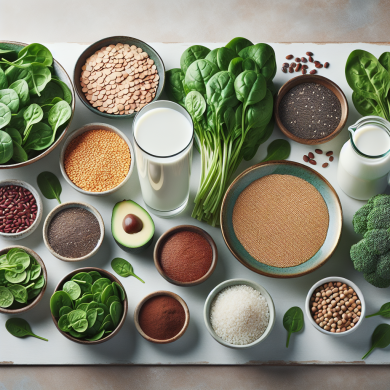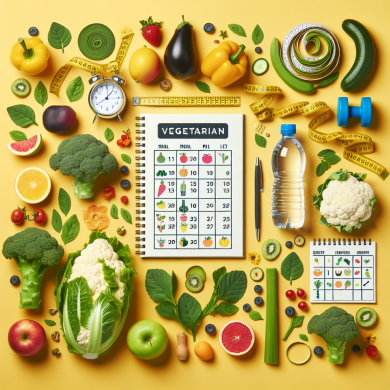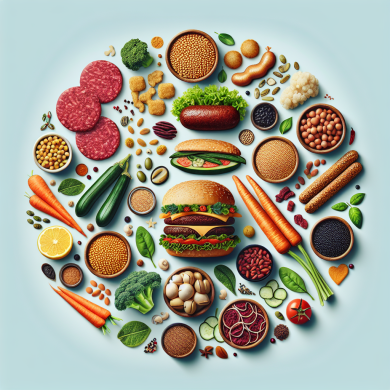Dairy vs. Non-Dairy: Vegetarian Choice Dilemma
Introduction
The debate between dairy and non-dairy options has become a central issue in the dietary choices of vegetarians. As more people adopt vegetarian lifestyles for ethical, environmental, or health reasons, the question of whether to include dairy products in one’s diet or to opt for plant-based alternatives becomes increasingly significant. This article delves into the nutritional aspects, health implications, ethical considerations, and environmental impact of both dairy and non-dairy choices, providing a comprehensive guide for vegetarians navigating this dilemma.
Nutritional Comparison
Dairy Products
Dairy products, such as milk, cheese, and yogurt, are traditionally known for their rich nutritional profile. They are an excellent source of calcium, which is essential for bone health, and they also provide high-quality protein, vitamin D, vitamin B12, phosphorus, and potassium. The protein in dairy is complete, meaning it contains all nine essential amino acids that the body cannot produce on its own.
Non-Dairy Alternatives
Non-dairy milk alternatives include soy, almond, oat, rice, and coconut milk. These options vary significantly in their nutrient content. For instance, soy milk is comparable to cow’s milk in terms of protein content and is often fortified with calcium and vitamin D. Almond milk, while lower in calories, generally contains less protein. Oat milk is a popular choice for its creamy texture and is often enriched with vitamins and minerals. However, not all plant-based milks are fortified equally, making it crucial for consumers to read labels and ensure they are getting adequate nutrients.
Health Implications
Dairy Consumption
The consumption of dairy products has been a topic of extensive research. Some studies suggest that dairy may contribute to improved bone health, reduced risk of cardiovascular disease, and lower incidence of type 2 diabetes. However, dairy can also be high in saturated fats and cholesterol, potentially increasing the risk of heart disease when consumed in excessive amounts. Lactose intolerance is another concern, affecting a significant portion of the population, leading to digestive issues upon consuming dairy.
Non-Dairy Consumption
Opting for non-dairy alternatives can help individuals avoid lactose-related digestive problems and reduce saturated fat intake. Plant-based diets, including non-dairy choices, have been associated with lower risks of heart disease, obesity, and certain types of cancer. However, it is important to note that without proper fortification, non-dairy alternatives may lack essential nutrients found in cow’s milk, such as calcium and vitamin D, necessitating supplementation or dietary adjustments.
Ethical Considerations
Dairy Industry
Ethical concerns surrounding dairy production often revolve around animal welfare. Conventional dairy farming practices have been criticized for the treatment of cows, including issues related to confinement, breeding, and the separation of calves from their mothers. These practices can raise moral questions for vegetarians, particularly those who choose this lifestyle for animal rights reasons.
Non-Dairy Alternatives
Non-dairy products, being plant-based, generally avoid the ethical concerns associated with animal farming. However, they are not without their own ethical considerations. The production of some plant-based milks, such as almond milk, has been criticized for its high water usage and impact on bee populations. As with all food choices, it is important for consumers to consider the ethical implications of their dietary decisions, including the sourcing and production practices of non-dairy alternatives.
Environmental Impact
Dairy Production
The environmental impact of dairy production is significant. It contributes to greenhouse gas emissions, requires substantial water resources, and involves large-scale land use. The methane emissions from dairy cows are a notable contributor to climate change, and the industry’s reliance on feed crops can lead to deforestation and biodiversity loss.
Non-Dairy Production
Non-dairy alternatives generally have a lower environmental footprint compared to traditional dairy. Plant-based milks typically require less water and land and produce fewer greenhouse gas emissions. However, the environmental impact varies among different types of non-dairy milks. For example, almond milk production is water-intensive, while soy and oat milks have relatively lower water footprints. Consumers mindful of their environmental impact should consider these factors when choosing non-dairy options.
Culinary Versatility and Taste
Dairy Products
Dairy products are renowned for their versatility in cooking and baking. They provide creaminess, richness, and flavor to a wide range of dishes, from sauces and soups to desserts and baked goods. Cheese, in particular, offers varied flavors and textures that can enhance many recipes.
Non-Dairy Alternatives
Non-dairy alternatives have come a long way in terms of taste and culinary versatility. With the growing demand for plant-based options, manufacturers have developed a wide array of products that mimic the taste and texture of dairy. While some non-dairy products may not perfectly replicate the flavor of their dairy counterparts, many people find them suitable substitutes in recipes. It may take some experimentation to find the non-dairy products that best suit individual taste preferences and cooking needs.
Conclusion: Making an Informed Choice
The decision between dairy and non-dairy options is a personal one, influenced by various factors including health, ethics, environment, and taste preferences. For vegetarians, this choice can be particularly nuanced, as it involves balancing nutritional needs with ethical and environmental considerations. When making this decision, it is essential to assess the nutritional content of non-dairy alternatives, consider the ethical implications of both options, and evaluate the environmental impact of one’s dietary choices.
Ultimately, the key to a healthy vegetarian diet, whether it includes dairy or not, is variety and balance. By being informed and mindful about the choices available, vegetarians can tailor their diets to align with their values and health goals, ensuring they meet their nutritional needs while also considering the broader impact of their food choices.















Add comment